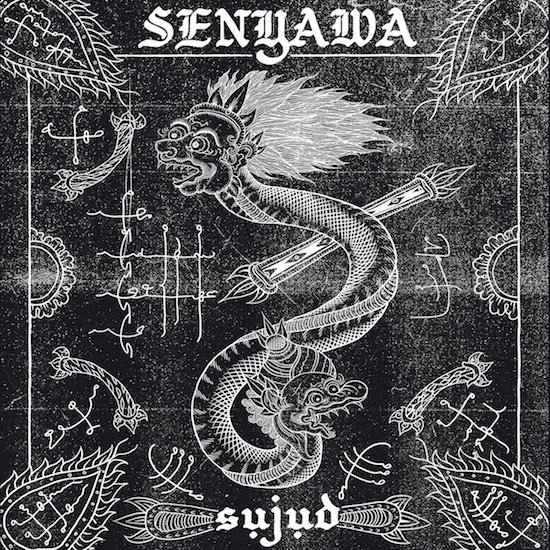The concept of heaviness in music tends to be measured in terms of frequency and loudness, where low-end vibrations at maximum volume yield the weightiest results. Rully Shabara’s voice and Wukir Sarayadis’ bambuwakir (a homemade percussive and stringed instrument) have forged Senyawa’s deep and extreme dynamics since 2011, yet theirs is a sound that brings with it another dimension of weight, one that can’t be measured.
Talking to The Quietus <a href=http://thequietus.com/articles/18665-senyawa-interview “ target=out”>in 2015 Shabara described the meaning of Senyawa to be “when two or more different elements combine and create something new… Senyawa is all about the relationship between man and nature.” The gravity of this relationship is undoubtedly more keenly felt in the duo’s Javanese homeland, with the ever-present threat of volcanoes, earthquakes and tsunamis, than in the west. It lends their work an ominous spirituality, where sonic heaviness is corroborated by a ritualistic energy.
Sujud represents their first new recordings together since 2016’s Brønshøj (Puncak), which zoomed in on the textural qualities of their music to arrive at a meditative, almost ambient, album. It lacked the ferocity of their previous releases and live shows but gained a more refined sound through studio experimentation.
Recorded in Canberra by Shoeb Ahmed, Sujud somehow sounds even purer but reinstates some of the energy of their earlier work. Opening with an invocation where the power in Suryadis’ thunderous chords, played on a new guitar hand-built for the album, is matched by Shabara’s mantra such that they magically merge. It prepares the room for the dramatic liturgy to follow, starting with the subtler, although no less penetrating, title track. The plucked and bowed folk strings on ‘Sujud’ combine with Shabara’s deep-throated commandments to build a devotional fervour worthy of its title, which translates as ‘Prostration’ .
However, this heavyweight production has as much to do with the qualities of the sounds as their contexts. Like Sunn O))) and Om before them, Senyawa have consistently and carefully focused on ways to play and record their two sound sources to arrive at a fusion whose weight belies their minimal sonic elements; with Sujud they have made one of the heaviest and most seductive albums of the year.


